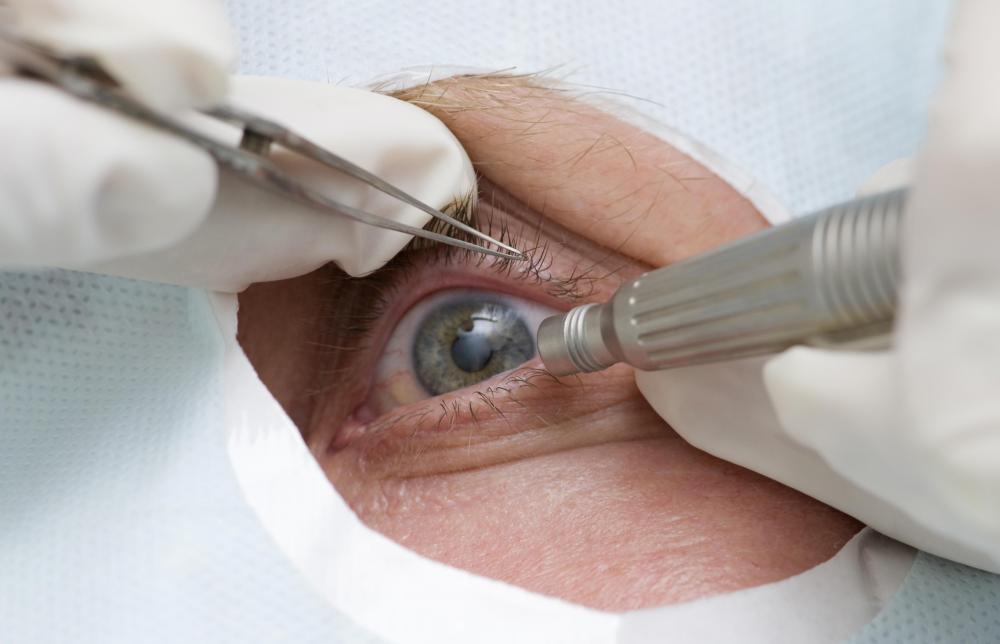At TheHealthBoard, we're committed to delivering accurate, trustworthy information. Our expert-authored content is rigorously fact-checked and sourced from credible authorities. Discover how we uphold the highest standards in providing you with reliable knowledge.
What is Corneal Degeneration?
Corneal degeneration is the gradual breakdown of the cornea, the clear dome on the front of the eye that covers the iris and pupil. The cornea is also responsible for refracting light, along with the lens of the eye, so corneal degeneration results in a gradual loss of vision. While most forms of corneal degeneration are inherited, a few are caused by injury or trauma, infection, vitamin A deficiency, or other environmental factors.
Two of the most common inherited disorders that cause corneal degeneration are keratoconus and Fuch's endothelial dystrophy. In keratoconus, the cornea thins and becomes conical in shape, causing blurred or double vision, poor night vision, sensitivity to light, and sometimes itching. Keratoconus appears in childhood or young adulthood and is more common in people with Down's syndrome, but its genetic mechanism is not fully understood. It is treated with therapeutic contact lenses or surgery, depending upon the severity of the condition.

Fuch's endothelial dystrophy manifests as swelling blisters, or edema, in the cornea, causing blurred vision, particularly in the mornings, and pain. It is more common in females and the elderly, and can be triggered by surgical complications. Fuch's endothelial dystrophy is also treated with therapeutic contact lenses or surgery, most often corneal transplant. Corneal edema can also be caused by environmental factors such as trauma, viral infection, glaucoma or damage to the optic nerve, and contact lenses that are ill-fitting or worn for too long. It is often treated with medication or a change in contact lens prescription, but advanced cases may require surgery.

Corneal ulcers are another possible cause of corneal degeneration. They can be caused by bacterial, fungal, or viral infection, or by injury to the cornea. Staphylococcus and streptococcus bacteria, the herpes simplex virus, and yeast infection are all common causes of corneal ulcers. Corneal ulcers cause both impaired vision and intense pain. If untreated, they can lead to scarring and eventually to blindness.

Treatment for corneal ulcers often depends upon the cause, and may include antibiotics, antiviral drugs, or steroids. In some cases, medication is not required, and the ulcer heals on its own. Anesthetic eye drops may be used to manage the pain, and the eye may be bandaged shut to allow it to heal.
AS FEATURED ON:
AS FEATURED ON:


















Discuss this Article
Post your comments